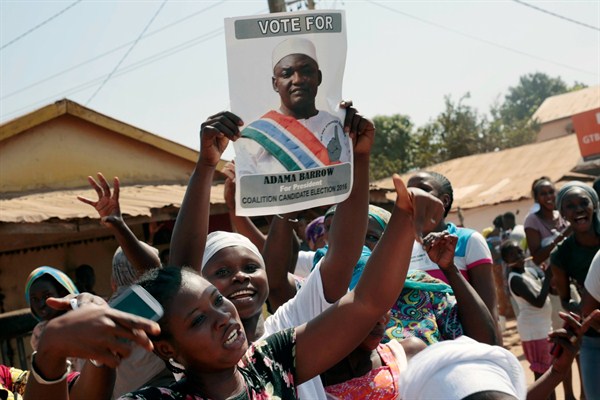In a surprise victory that shocked Gambians and foreigners alike, opposition candidate Adama Barrow defeated Gambia’s long-time dictator, Yahya Jammeh, in the country’s presidential election last Thursday. Initial reporting suggested that Barrow had won by 50,000 votes or more, which would have been a blowout victory in a country with roughly 1.8 million people. But the revised and final tally issued by Gambia’s Independent Electoral Commission on Dec. 5 showed a much closer result: 227,708 votes for Barrow, 208,487 votes for Jammeh and 89,768 for third-party candidate Mamma Kandeh.
It will take time before the structure of Barrow’s victory is fully understood, but even with that narrower margin, the electoral upset suggests that either voters or elites—or both—were so sick of Jammeh that he saw the writing on the wall. In other words, Jammeh likely could have won if he wanted to, by manipulating the results. But it seems he calculated that the cost of victory would be too great.
Jammeh took power in a junior officers’ coup in 1994. As head of state, he won elections in 1996, 2001, 2006 and 2011. Each time, the runner-up was lawyer Ousainou Darboe, head of the opposition United Democratic Party (UDP). Some of those elections were close, but Jammeh repeatedly used state power to guarantee victory. For example, in advance of the 2011 election, the Commission for the Economic Community of West African States (ECOWAS) declined to send observers to Gambia, stating in a press release that “the preparations and political environment for the said election are adjudged by the Commission not to be conducive for the conduct of free, fair and transparent polls.” The Commission added, “The reports of [our] fact-finding mission and the Early Warning System paint a picture of intimidation, an unacceptable level of control of the electronic media by the party in power, the lack of neutrality of state and para-statal institutions, and an opposition and electorate cowed by repression and intimidation.”

